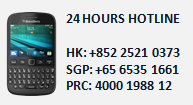Ship Owner
1. What types of insurances does a vessel require?
There are three types of insurances which are usually considered standard and invariably arranged for a vessel, and mortgagees would require the purchase of all three insurance.
- Hull Insurance.
- P&I insurance.
- War risks insurance.(click here for more details)
2. Does a vessel require other insurances?
The vessel may require to arrange additional insurance in the event the annual insurances may become prejudiced or breached. For example the P&I insurance may become prejudiced as a result of carriage of cargo on deck (click here for more details), or there is a breach of the Hull insurance as a result of the vessel trading to a port outside permitted trading limits(click here for more details), or the vessel trades to a war risk zone which amounts to a breach of the war risks cover.(click here for more details)
3.Are there any other insurances which the vessel should arrange?
There are insurances to cover the legal costs of any dispute arising from the vessels operations, which are not covered under the vessels P&I cover. These disputes usually are of a commercial nature such as non payment of freight demurrage, hire etc. This cover is known as Freight Defence and Demurrage cover (FDD).
There are also insurances to cover the vessel's loss of hire or delay insurance caused by certain perils. (click here for more details). This insurance is optional depending on the shipowner's perception of risk and how such risks may affect the vessel's income or cash flow which may be necessary to meet mortgage payments.
4. What is the insured's obligation when providing information to insurers?
The insured must disclose all information which an insurer may consider material to the risk. In other words any information which may affect the insurer's decision in offering to quote including different conditions of cover and rate must be disclosed.
5. Can you give some examples what information must be disclosed?
There are some trades which an insurer may consider high risk such as logging. If the vessel may carry logs, this must be disclosed. (click here or here for more details).Information given by the insured the vessel is technically managed by a particular company must be correct. The insurer will require to know of the claims or loss record for the current and past three years. This loss or claims record relates to the full record of the technical ship managers and not the vessel which is the subject of the insurance quote. Sufficient information on the nature and date of each casualty and the gross claim is required. Disclosure of claim information is required if such claims would be covered under the insurances for which a quote is being sought even though these claims were not insured previously.
6. What may happen if the information given to insurers is incorrect?
The insurer can decline to pay a claim based on the insured's non disclosure or misrepresentation of material information. Proper insurers will not employ this reason to decline a claim unless the information is substantially incorrect and misleading.
7. What should an insured pay attention to under a marine insurance policy?
Warranties, the breach which will enable the insurer to avoid all claims as from the time of the breach.(click here for more details). Examples are breach of trade area warranty, cargo warranty, class warranty, ISM certification, premium payment warranty, survey warranty.
8. Why do insurers pay particular attention to the technical managers of the vessel?
This information is material to an owner's enquiry. The risk of claims are usually associated with the ability and experience of the technical managers.
9. How is a technical manager defined?
A technical manager should be responsible for the vessel's selection of crew and planned maintenance of the vessel. It is not material whether a technical manager is also responsible for the vessel's commercial management or insurances. However if the technical manager is also assisting the shipowner to arrange the insurance such information will also become important.
There is an insurance to cover legal costs of those disputes which the shipowners may have with the charterer or other parties which are not covered under the P&I cover. There are usually commercial disputes such as deduction of hire, recovery of freight and demurrage. This type of cover is called Freight Demurrage & Defence insurance. It is important to note this insurance only covers the legal costs in the dispute and does not cover the ultimate recovery or liability.
10. Who should be named as coassureds under the vessel's insurances?
In addition to the shipowner, the technical manager is in practice included as a coassured as the risk of claims is closely associated with the management. With regard to P&I insurance there are instances in some jurisdictions where the claimant looks to each party involved in the voyage for security, and should the managers not be a coassured under the P&I insurance, they would have to resort to their own financial means to provide this security which may cause delays to the vessel.
It is possible to include the commercial managers as a coassured, especially if they are an in house department of the shipowner. This is useful when the commercial manager is entering into contracts on behalf of the shipowner.
11. Who should not be included as coassureds under the insurances?
Any party who is not closely associated with the shipowner. In other words if the actions of the party does not amount to an extension of the shipowner, that party should not be included as a coassured. Examples are independent crewing agents, spare part suppliers etc.
12. What value should my vessel be insured for and can I save premium by insuring on a lower Hull insured value for the vessel?
In principle you will be paying a lower premium for a lower insured value, however as the rate is a variant of the value, a higher premium rate would be commensurate with a lower value.
However if the vessel's insured value is lower than the sound market value at the time of a casualty, you will not be able to obtain a full indemnity under both the hull and P&I insurances. The shipowner should ensure the vessel's insured value sufficiently covers her sound market value.(click here for more details)
Unlike a non marine insurance policy the Hull insurance pays the agreed insured value in the event of a total loss regardless of the lower sound market value of the vessel. In practice it is customary for shipowners to insure on a value slightly more than the vessel's sound market value in order to provide a margin for fluctuating ship prices and to take into account the additional losses arising from a total loss such as bunkers and stores and spares.
13. Are there insured values or limits of liability to evaluate under a P&I insurance?
Group P&I Clubs provide P&I cover subject to standard limits of liability as follows.
- Oil pollution - US$ 1 billion per occurrence.
- All Other claims - US$4.25 billion per occurence.
This limit of liability may be reduced to US$5 million if considered necessary by the P&I Club due to the nature of the trade or the vessel is not classed with an IACS class society. Group P&I clubs may not be agreeable to any other variants on limits of liability.
There are fixed premium P&I insurers who can offer other variants of limits of liability which are lower than the limits under the Group P&I Club cover. As a guidance the limit of liability which you should insure under the P&I cover should be sufficient to cover the vessel's maximum liability to claims calculated with reference to the vessel's legal limitation of liability.





